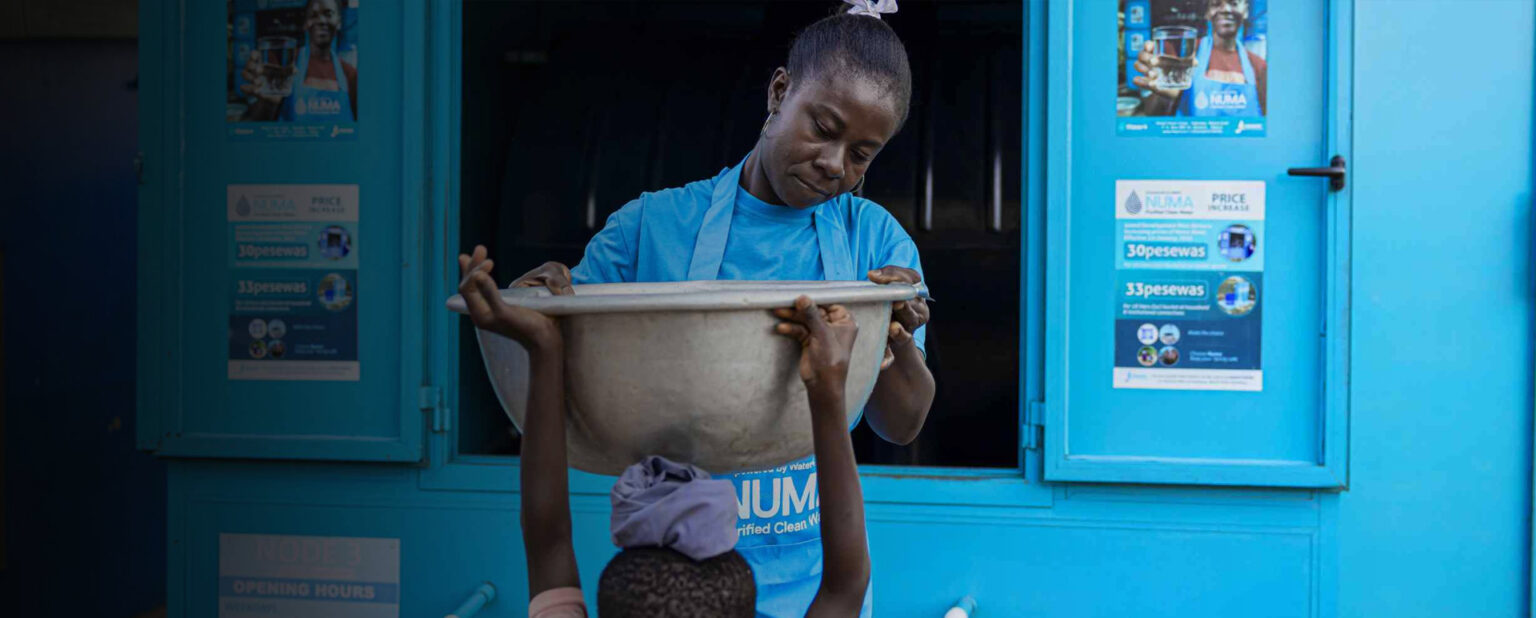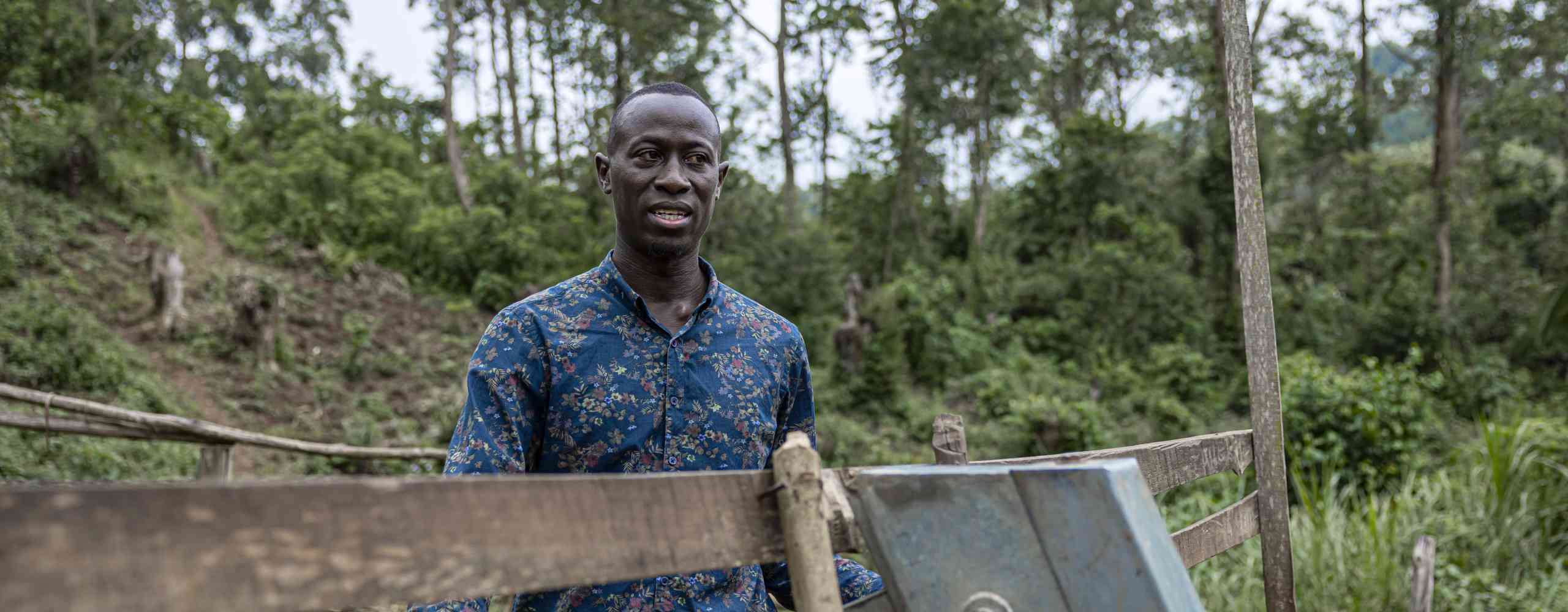

Access to safe water services drives health, social and economic well-being. It is an essential component for development and shared prosperity. Without it, peoples’ lives and livelihoods are at risk. Climate change, poor water resource management, and limited capacity to operate and maintain infrastructure can result in a lack of safe water services in households, schools and healthcare facilities. The Conrad N. Hilton Foundation Safe Water Initiative focuses on supporting communities, governments and non-government stakeholders with system-strengthening and sustainable service delivery to key geographic areas of sub-Saharan Africa. By sustaining infrastructure and building local capacity in operation and maintenance, our activities enhance the health and socioeconomic benefits of communities and advance Sustainable Development Goal 6.1, paving the way to universal and equitable access to safe and affordable drinking water for all.

Our vision is for everyone in rural Africa to have access to safe drinking water. We invest in reliable, sustainable, and affordable water services, with a focus on hard-to-reach communities in Ethiopia, Ghana, and Uganda.
Connect and strengthen local, national and regional efforts to deliver reliable, professional, climate-resilient and safe water services to underserved communities.
Achieve universal and equitable access to safe and affordable drinking water in alignment with United Nations SDG 6.1.
Address systemic challenges related to Safe Water, including sustainable water resource management, climate change, policy and regulatory frameworks, infrastructure and data systems.
Partner with stakeholders to develop and test models that provide safe water services with great value and potential to scale.
Bring together equity-focused funders to replicate solutions for those with the greatest needs, regionally and nationally.
Advocate for the shared dividends that come from safely managed water services.


Through ongoing partnerships, long-term investments and flexible financing mechanisms, we are implementing sustainable safe water service delivery models in sub-Saharan Africa’s remote communities. Our commitment narrows gaps between those living in disadvantage and others, creating a locally-driven replicable model that catalyzes equitable access to safe and affordable drinking water (SDG 6.1) around the world.
S25 Results as of October 2025 – the initiative has contributed to the following results across Ghana, Ethiopia and Uganda since the strategy was launched in 2021:
The Hilton Foundation Safe Water initiative supports underserved communities in target geographic areas in Ethiopia, Ghana and Uganda.
